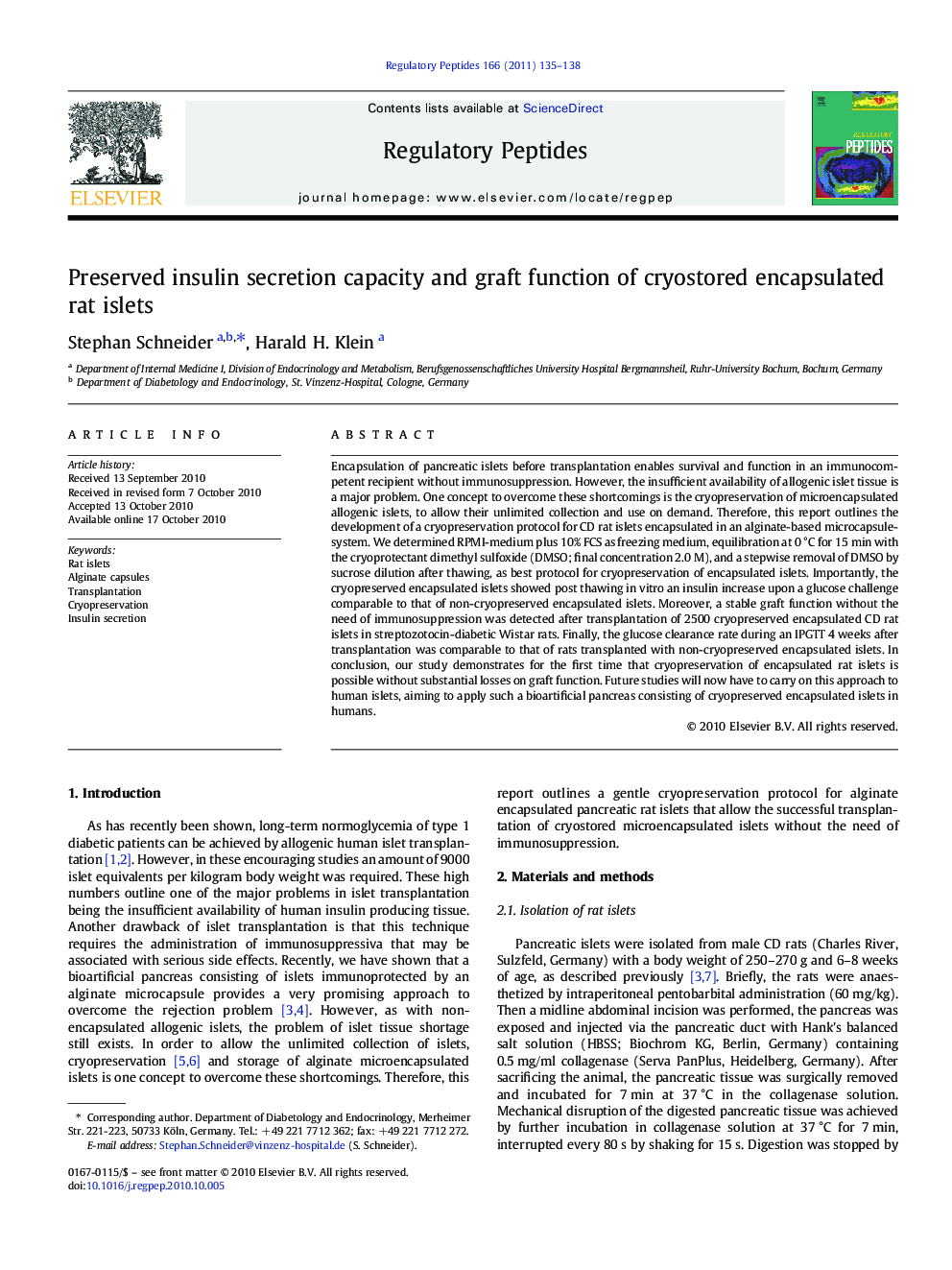| Article ID | Journal | Published Year | Pages | File Type |
|---|---|---|---|---|
| 2022625 | Regulatory Peptides | 2011 | 4 Pages |
Encapsulation of pancreatic islets before transplantation enables survival and function in an immunocompetent recipient without immunosuppression. However, the insufficient availability of allogenic islet tissue is a major problem. One concept to overcome these shortcomings is the cryopreservation of microencapsulated allogenic islets, to allow their unlimited collection and use on demand. Therefore, this report outlines the development of a cryopreservation protocol for CD rat islets encapsulated in an alginate-based microcapsule-system. We determined RPMI-medium plus 10% FCS as freezing medium, equilibration at 0 °C for 15 min with the cryoprotectant dimethyl sulfoxide (DMSO; final concentration 2.0 M), and a stepwise removal of DMSO by sucrose dilution after thawing, as best protocol for cryopreservation of encapsulated islets. Importantly, the cryopreserved encapsulated islets showed post thawing in vitro an insulin increase upon a glucose challenge comparable to that of non-cryopreserved encapsulated islets. Moreover, a stable graft function without the need of immunosuppression was detected after transplantation of 2500 cryopreserved encapsulated CD rat islets in streptozotocin-diabetic Wistar rats. Finally, the glucose clearance rate during an IPGTT 4 weeks after transplantation was comparable to that of rats transplanted with non-cryopreserved encapsulated islets. In conclusion, our study demonstrates for the first time that cryopreservation of encapsulated rat islets is possible without substantial losses on graft function. Future studies will now have to carry on this approach to human islets, aiming to apply such a bioartificial pancreas consisting of cryopreserved encapsulated islets in humans.
Research Highlights► Novel cryopreservation protocol for microencapsulated islets. ► Enables preserved insulin secretion capacity in vitro. ► Enables stable graft function in vivo without immunosuppression.
